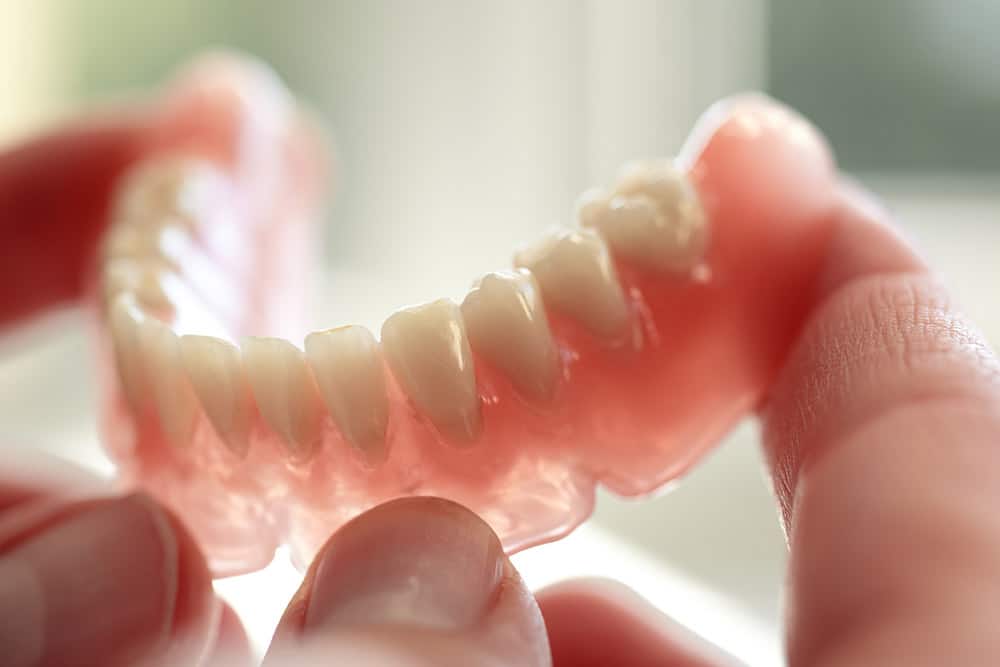The thought of wearing dentures may be taboo to some folks… but there’s plenty of upside to dentures, and there shouldn’t be a stigma attached to wearing them.
Dentures fill the void of lost teeth, helping to improve your smile (and confidence). But they also help maintain the bone structure of your face, decreasing your risk of irreversible bone deterioration.
Unfortunately, along with all of its benefits, a new study has found a potential danger that all denture wearers need to be aware of…
Today, I’m going to fill you in on this new threat – and then, I’ll share a few simple steps you can take to reduce your risk and keep your mouth – and body – safe.
Dentures Lead to Malnutrition?
Even if you’re wearing the Rolls Royce of dentures, they can never fully replicate the efficiency of your real teeth – especially when it comes to chewing food.
Sure, there are plenty of fancy bonds and adhesives that help keep your dentures in place…
But researchers at the Indiana University School of Dentistry looked at the “chewing efficiency” of denture wearers to see if it has a negative impact on their health.
They found that because dentures can’t replicate the same chewing function as real teeth, this may lead to dietary restrictions and even malnutrition.
That means, your body isn’t getting enough vital nutrients, putting you at risk for muscle loss, frailty, and falls.
So, what’s the answer to this potential problem? Giving up on your dentures?
Hardly!
The simplest approach to avoiding malnutrition is taking steps to change how some of your food is prepared.
Take meat for example…
Chewing meat can be difficult if you have dentures. But meat – especially red meat – contains iron, a vital nutrient, which means you shouldn’t give it up completely.
Cutting pieces of meat into smaller, more tender, pieces will ensure your dentures aren’t overly taxed, while still getting the vital nutrients (and protein) your body needs to stay healthy and strong.
Make sure you’re also talking to your dentist about your dentures – especially when it comes to how they fit. If they feel uncomfortable or don’t feel secure, your dentist can make alterations to ensure a proper fit.
Finally, be sure to work with your doctor to find out which vitamins and minerals you are deficient in. If dentures are holding you back from eating foods that contain vital nutrients, your doctor can recommend a supplement to increase your levels.

